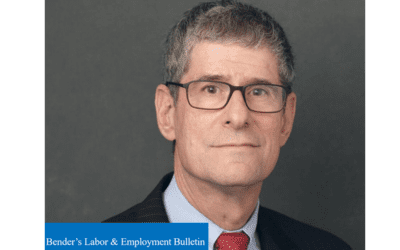Unlike individual life insurance, which requires rigorous underwriting to assess risk, group life insurance from employers does not require underwriting. Employers offering group life insurance allow new employees to enroll immediately without providing evidence of insurability (EOI). The reasoning is that a new employee is likely to be healthy, and the risk of adverse selection is low.
If an employee forgoes enrolling in the life insurance program at the commencement of employment, seeks to enroll a dependent or spouse later, or seeks to increase the amount of insurance, they must provide evidence of insurability. This allows the insurer to assess the added risk. Insurance companies rely on employers to obtain evidence of insurability. But what happens if employers fail to do so?
Table of Contents
Employee Rights and Responsibilities
An employee’s right to enroll in a group life insurance plan is based on the plan’s requirements. If the employee is a late enrollee and fails to submit evidence of insurability, additional coverage may be declined. If the employee submits the EOI form and the insurer has denied coverage, the employee has a right to appeal the denial. However, if the employee fails to meet the insurer’s underwriting standards, the employee is unlikely to receive the new or added coverage.
Have you been denied life insurance due to Evidence of Insurability issues? Contact DeBofsky Law for assistance.The employer, not the insurer, is responsible for obtaining evidence of insurability. Indeed, group insurance policies typically impose a duty on the employer to do so. If the employer fails to obtain an EOI form from the employee, and the insurance company denies life insurance benefits if the employee dies, the employer may be liable to the employee for breach of fiduciary duty under ERISA. ERISA is the federal law governing employee benefits.
Several court rulings have found employers liable for failing to obtain evidence of insurability from their employees when they were required to do so. That failure led to a denial of life insurance payments. These are complex cases, and the specific facts of each situation dictate the outcome. However, the overriding rule of law cited by the courts is that ERISA imposes a fiduciary obligation on employers to act in accordance with benefit plan terms. If the failure to do so results in a benefit denial, the employer is liable for the loss.
Employer Obligations
What Employers Must Do About Evidence of Insurability
When employers fail to secure evidence of insurability and a subsequent life insurance claim is denied, the court may order the employer to pay the amount of insurance that was lost on account of that failure. This applies regardless of whether the employer acted intentionally or negligently. However, if the employee or their dependent enrolls in the life insurance plan without EOI and premiums are collected, the insurance company may also face liability.
There is a principle of insurance law known as contestability. Under the principle of contestability, insurers can contest coverage within two years of a policy’s issuance due to omissions or misstatements made during enrollment. Thus, if more than two years pass after evidence of insurability was required and premiums have been paid throughout, an insurer may not be able to avoid paying the life insurance benefits.
Insurer Obligations
The U.S. Department of Labor has addressed evidence of insurability and settled with insurers to stop them from denying coverage once premiums have been accepted for at least 90 days. The Department of Labor issued the following statement in relation to one of its settlements:
“Workers pay premiums believing they will receive their promised benefits,” said Assistant Secretary for Employee Benefits Security Administration Lisa M. Gomez. “Once workers pay these premiums, life insurance companies must verify that plan participants satisfy eligibility requirements. EBSA will not allow companies to neglect their responsibility for making timely eligibility determinations, collect premiums for months or years, and then deny payment of death benefits to beneficiaries because the company failed in its legal responsibility.”
The position taken by the Department of Labor emphasizes that it is not only employers who have the responsibility to collect evidence of insurability from employees. Insurers must ensure that new enrollees are qualified to receive coverage before accepting premiums. The Department of Labor is also sending a message to insurers that they cannot wait until a claim is made to begin investigating whether the issuance of coverage was appropriate.
Best Practices for Employers and Employees
On the other hand, employers are not being left off the hook. Employers can avoid these situations by implementing strict practices to ensure EOI is obtained before processing late enrollments or coverage increases. Obviously, employers should also implement procedures to prevent situations where employees think they have coverage, only to discover otherwise after a loved one’s death.
For employees, it is important to keep records of life insurance enrollments and any communications with the employer surrounding the enrollment. If questions arise about EOI, employees must show either that no request for an EOI form was made or that they submitted the form and the employer didn’t act.
What to Do if an EOI Issue Arises
Life insurance is critical in the event of an anticipated death and there is a need for financial support. Therefore, if there is any question about life insurance enrollment, employees should seek consultation with an attorney as soon as a problem arises.
If a death has occurred and the insurance company is claiming that no benefits are payable due to the failure to submit evidence of insurability, the beneficiaries should not just give up. There may be a basis for challenging the determination. To find out, beneficiaries should consult with an attorney who has the knowledge and experience to address the issues surrounding evidence of insurability. Not every attorney fits that bill, but the attorneys at DeBofsky Law have successfully litigated cases involving evidence of insurability and enabled their clients to collect benefits for which they had paid premiums.
If you have been denied life insurance due to evidence of insurability issues, contact the attorneys at DeBofsky Law to review your case.







